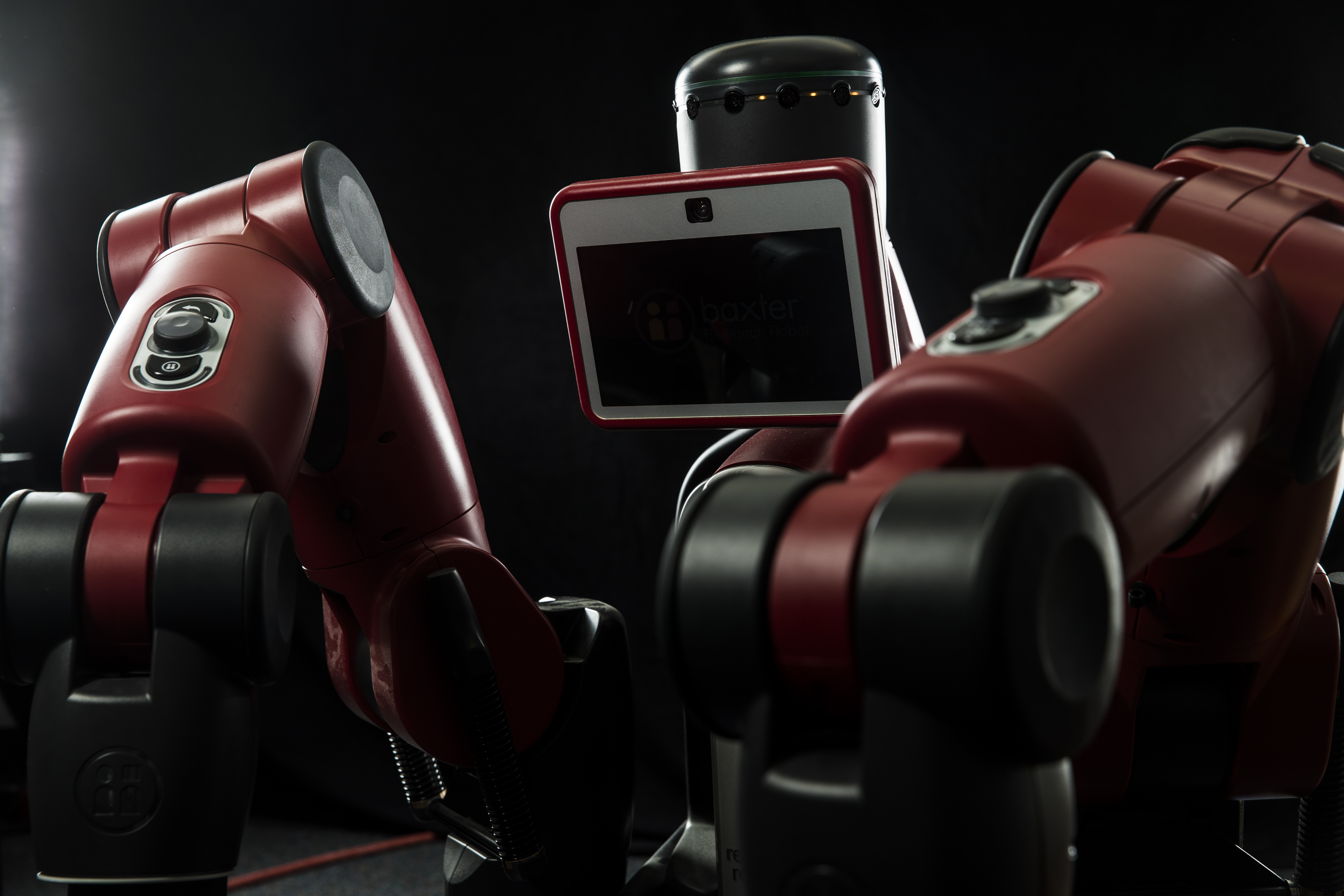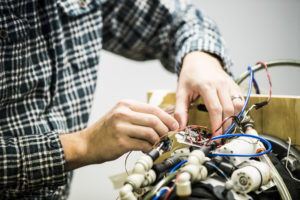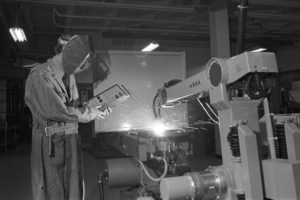
The artificial intelligence revolution is here.
Technological advancements involving computers and robots are making big impacts on the workplace and don’t appear to be slowing down anytime soon.
Between 400 million and 800 million jobs throughout the world are estimated to be replaced by AI by 2030, according to a study by the McKinsey Global Institute. The study states the jobs most likely to become automated in the U.S. include food preparation workers, production workers and travel workers.
Utah has the 35th highest job automation potential among states in the U.S. at 45.6 percent, according to a report by the Brookings Institution. Over one million jobs in the state could be replaced by AI by the year 2030.
The reactions to this revolution are mixed. Although there is a certain level of uncertainty when it comes to bringing AI into the workplace, BYU economics professor Michael Ransom said job automation can prove to be a positive thing for the economy.

(Nate Edwards/BYU Photo)
“When you get new technological changes it eliminates some jobs but it typically creates other ones,” Ransom said. “There’s always this question of, ‘Will the technological changes create or destroy more jobs?’ but really there’s always going to be something that people could do. They will just have to change what they’re doing.”
Ransom mentioned that as new technological advancements such as robots have taken over production-based jobs, there has been a growth in service sector jobs such as health-care and recreation services. An increase in those who choose to go into the workplace right out of high school could be seen performing more relationship-based jobs rather than heading into the factories.
BYU Economics Student Association President Kevin Standridge said he believes the reason why there is skepticism toward AI is because of how fast it can impact the workplace.
“The reason artificial intelligence is scary for a lot of people from an economic perspective is that it has the potential to replace so many jobs at once,” Standridge said. “It puts a lot of people out of work.”
Overall, however, Standridge sees automation as a good thing that might just take some time for people to get used to.

(Mark Philbrick/BYU Photo 1981)
History shows the introduction of new technology into society has often been met with skepticism and resistance. The printing press, typewriters and computers are examples of major technological advances that eventually proved critics wrong.
“Throughout history you always have instances of creative destruction,” Standridge said. “When we first made typewriters it made printing a lot more efficient. When we got computers the same thing happened, we put all the typewriters out of business. Artificial intelligence is just the same step but for a lot of different industries.”
Tesla, Waymo and Uber are just a few companies that are facing such opposition today. Although the idea of self-driving cars is scary to some, such technology could become commonplace in the future and could result in the job displacement of truck, bus and taxi drivers.
“As time goes on and you start seeing things like self-driving cars, people will have to switch to more mind and engineering-based jobs rather than doing basic menial work,” said Alex Wright, a chemical engineering major from Draper. “Job automation does take some people out of business, but there are more effective and productive things that they could be doing instead.”
Although the effects of AI in the workplace can cause some concern, Ransom believes being flexible and having a college education are crucial for success in the future.
“The hallmark of a good education is that you can be flexible and learn how to do things,” Ransom said. “Having a strong, broad education is a good idea. The most educated people have done very well during the last couple of decades, so things look pretty good for college-educated students.”
Standridge believes that the effects of job automation will push some to seek post-graduate degrees, but ultimately sees flexibility and problem-solving as the keys to success.
“There is going to be a lot of pressure for post-graduate work, that is going to be a force,” Standridge said. “But that doesn’t mean that it’s going to be the only option. A lot of it is just going to be learning on the job and (knowing) how to solve certain problems. I don’t necessarily think post-graduate work is going to be a must.”




